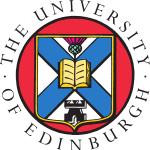 CFP: 60 Years of Essentially Contested Concepts
CFP: 60 Years of Essentially Contested Concepts
12 December 2016, University of Edinburgh
The University of Edinburgh’s Philosophy, History, and Literature, Languages and Culture schools, The Creation of Reality Group (CRAG), The Centre for the Study of Modern Conflict (CSMC), EIDYN, and the Institut Français UK celebrate the sixtieth anniversary of W.B. Gallie’s influential paper, ‘Essentially Contested Concepts’.
Walter Bryce Gallie (1912-1988) was an eclectic Scottish philosopher, Professor of Logics and Metaphysics at Queen’s University, Belfast, and eventually Professor of Political Science at Cambridge, UK. He is today mostly known for one still much cited paper, ‘Essentially Contested Concepts’, which was published in the Proceedings of the Aristotelian Society in 1956. In it Gallie anticipated some of the developments in philosophy, theory, and history of the following decades, in particular the (fecund) failure of a programme which purported to establish clearly the boundaries of concepts. A slightly revised version of the paper formed a central part of his book Philosophy and the Historical Understanding (1964). According to Gallie, ‘there are concepts the proper use of which inevitably involves endless disputes about their proper uses on the part of their users. […] An adequate understanding of them requires some appreciation of their history.’ There are seven formal conditions for a notion to be an ECC: (I) The concept in question must be ‘appraisive’, signifying a valued achievement; (II) This achievement must be of an internally ‘complex’ character; (III) The accredited achievement is initially variously ‘describable’; (IV) It admits of considerable and unpredictable ‘open’ modifications; (V) ‘Agonism’: to use an essentially contested concept means to use it both ‘aggressively and defensively’; (VI) Each party refers to an ‘original exemplar’ and tradition whose authority is meant to be acknowledged; (VII) The historical and philosophical process of the ECC is oriented towards a horizon of intelligibility.
We invite paper submissions from all fields of research related to the idea of ECC in general or to applied case-analyses of a particular ECC. Papers between 3500 and 8000 words must be submitted by 1 November 2016. Abstracts (250-300 words) must be sent by 15 September 2016. All papers (10 to 15) will circulate 5 weeks before workshop day, and participants commit to read them all. Each participant will have 30 minutes to answer comments and questions from the other participants. The University of Edinburgh Press is interested in considering the papers as part of a publication.
For more info, contact the organiser, Luis de Miranda.